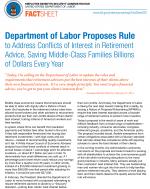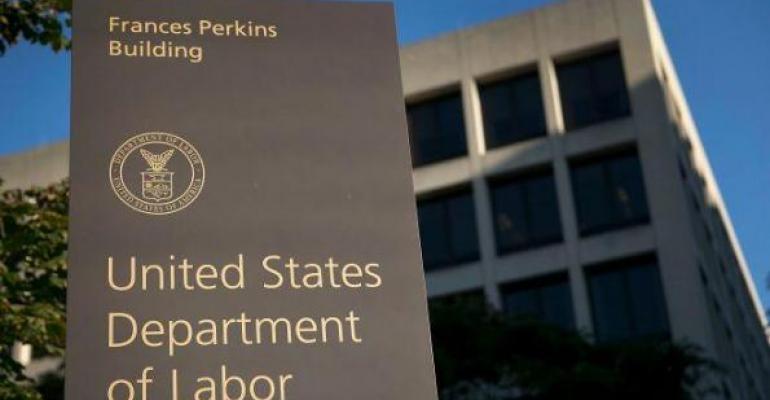The public got its first look Tuesday at the Department of Labor’s long-awaited proposed fiduciary rule for advisors to retirement accounts, which included several exemptions designed, the Secretary of the Dept. of Labor said, to protect investors while providing flexibility to financial advisors.
The proposed regulation would require advisors overseeing retirement plans to act under a fiduciary standard, putting client interests ahead of all other considerations when making investment recommendations on retirement accounts covered under the Employee Retirement Income Security Act. The DOL proposed a similar rule in 2010, but withdrew it after strong criticism from the industry and Congress.
The new proposal comes with many exemptions that will allow advisors to receive common types of payment for services, including commissions, revenue-sharing and 12-b-1 fees, U.S. Secretary of Labor Thomas E. Perez told reporters Tuesday. “The rule is intended to provide guardrails but not straightjackets,” he said.

One new exemption, called the "best interest contract exemption," would require advisors and firms who want to receive certain types of compensation to "formally commit" to clients they will put their best interests first, Perez said. “I have heard time and time again from people who provide advice who say ‘we would like to think we’re always putting our clients’ interests first’…this rule will simply codify what they say they’re already doing,” he added.
Under the contact, advisors must commit that they’re going to give advice that’s prudent, that fees will be reasonable and that policies and procedures are in place at the firm to ensure the standard is met, says Timothy D. Hauser, the deputy assistant secretary for Program Operations of the Employee Benefits Security Administration. The customer, Hauser says, will have more tools to enforce that contract.The proposal also gives the Internal Revenue Service the ability to impose an excise tax on transactions based on conflicted advice. Firms don’t have to apply for an exemption, advisors just have to enter into the contract and comply with the terms.
The 120-page proposed rule does not apply to appraisals or valuations of stock held by employee stock ownership programs. Perez also stressed that the proposed rules do not apply to brokers who only take transaction orders and do not provide advice and that it allows for financial education efforts by employers and call center employees who can provide general financial information without becoming fiduciaries.
Investor advocate groups like the Consumer Federation of America have long argued that commissions earned by brokers—who are not legally obligated to act as fiduciaries—incentivize transactions that hurt consumers, like advising clients to roll 401(k)s into IRAs with higher fees and excessive trading.
The OMB expedited the review of the proposal after President Barack Obama publically supported the DOL's efforts in a speech at AARP’s headquarters on Feb. 23. The speed with which the office moved on the proposal prompted some critics to question whether the agency was being thorough in its examination.
“We are disappointed that OMB only took 50 days to review this highly controversial rule that could negatively impact millions of investors. On average, Department of Labor rules are reviewed by OMB for 117 days,” Dale Brown, president and CEO of the Financial Services Institute, said in a statement Tuesday.
But Perez dismissed the criticism. “I think it strains credibility to suggest that there’s an effort to rush the process,” Perez said Tuesday, noting that it’s been five years since the first proposal and that he personally has spent a year and a half talking to interested parties.
The DOL will open a 75-day public comment period, followed by a public hearing to be held a month after the comment period closes. A public transcript of the hearing will be released and interested parties will have an additional opportunity to comment, Perez said. Following that, the agency will review all input and get to work on drafting the final rule.
Congresswoman Maxine Waters (D-Calif.) applauded the DOL’s efforts, but noted that the proposal has a lengthy road ahead before implementation. “Today’s action helps ensure that those providing investment advice are required to do so in a manner that puts their clients’ interests ahead of their own. Such a duty embraces an essential right we’ve celebrated in this country for more than 80 years – the right to retire with dignity and security.”

